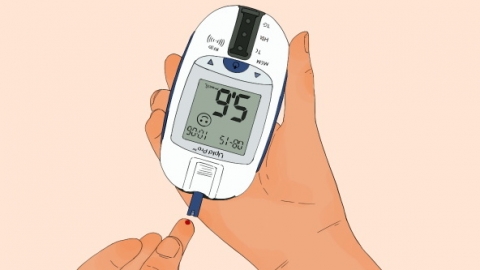How severe does a pregnant woman's condition need to be to require insulin injections?
Generally, when a pregnant woman's fasting blood glucose is ≥5.1 mmol/L, blood glucose one hour after meals is ≥10.0 mmol/L, or blood glucose two hours after meals is ≥8.5 mmol/L, insulin injections are required if these levels remain elevated despite dietary and exercise management. If concerned, it is recommended to seek medical advice early. Detailed explanation is as follows:

If a pregnant woman's blood glucose remains above the normal range despite dietary control and increased physical activity—for example, if fasting blood glucose consistently exceeds 5.1 mmol/L, blood glucose one hour after meals exceeds 10.0 mmol/L, or blood glucose two hours after meals exceeds 8.5 mmol/L—insulin therapy will be necessary. Prolonged high blood glucose levels can negatively affect fetal development and increase the risks of macrosomia and fetal malformations. Timely insulin use can help stabilize blood glucose levels and reduce adverse outcomes.
If a pregnant woman can maintain her blood glucose within the normal range through lifestyle modifications such as diet and exercise, and if both fasting and postprandial blood glucose levels meet the criteria with no other complications, insulin injections are unnecessary. Maintaining a healthy diet, engaging in moderate physical activity, and regularly monitoring blood glucose levels are sufficient for managing gestational blood glucose and avoiding unnecessary pharmacological intervention.
Pregnant women who detect abnormal blood glucose should strictly follow medical advice for blood glucose monitoring and, when necessary, promptly use insulin as directed. Self-adjustment of insulin dosage or refusal of treatment is strongly discouraged.






